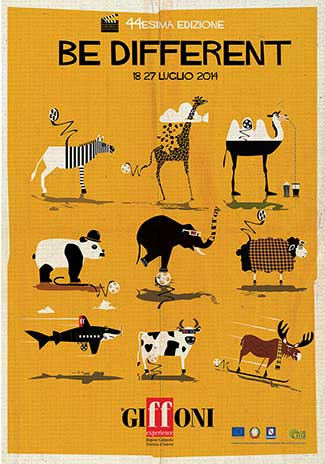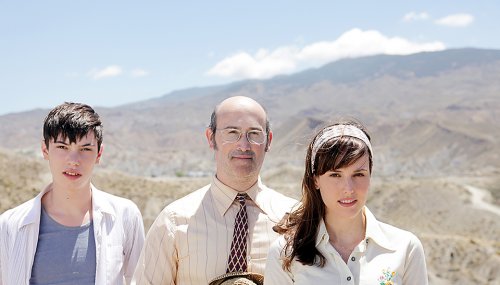 David Trueba
David Trueba
Born 1969, Madrid. He studied journalism at the Complutense University in Madrid. He started his career as a screenwriter (TWO MUCH). In 1996 he directed his first feature film, THE GOOD LIFE, screened at the 1997 Directors’ Fortnight at the Cannes Festival. Then he shot the feature films: MASTERPIECE (2000); SOLDIERS OF SALAMINA (2003), presented at the 2003 Cannes Festival in the Un Certain Regard section; WELCOME HOME (2006); MADRID, 1987 (2011), which participated in the 2012 Sundance Festival. He wrote 3 novels: ABIERTO TODA LA NOCHE (1995); CUATRO AMIGOS (1999); SABER PERDER (2008). LIVING IS EASY WITH EYES CLOSED won 6 Goya Awards 2014, including Best Film, Director, Original Screenplay.
Director’s statement
“The backdrop for LIVING IS EASY WITH EYES CLOSED is Sixties’ Spain: grey, contradictory, dictatorship-driven. Its older citizens are still conditioned by a civil-war past while the new, younger generation craves for moral and social freedom”.
“This contrast is especially pronounced in the southern part of the country; for instance, the severely impoverished province of Almería, where the first waves of massive tourism and foreign super film productions clash with delays and local limitations”.
“In this setting, John Lennon’s arrival in Spain to participate in Richard Lester’s HOW I WON THE WAR, brightens the mood of a segment of the youth population, symbolizing as he does freedom, a new morality and progress”.
“The Lennon who arrives to Spain is a Lennon in crisis. He has just released his troubles-induced HELP!. Uncertain about the future of the Beatles, experimenting with drugs and at the brink of a personal and professional divorce, Almería offers Lennon a chance isolate to himself and reflect. It is an introspective period in which his songs reveal a hitherto unknown intimate side, drawing on childhood memories and his later frustrations, many of which originate with the conflicting facets of sweeping success. Musical history notes that during his stay in Almería, Lennon composed one of his most personal pieces, STRAWBERRY FIELDS FOREVER”.
“Lennon is not the protagonist in this story; he is rather an unreachable icon, a symbol… The protagonists, in reality, are the three characters who belong to that Spain of the sixties: a demanding and dynamic English teacher, who suspects that social reform is more the product of personal ambition than political planning, a person who allows himself to be swept away by enthusiasm and desire; and two young people who, in different ways, struggle with prevailing social frustrations and the idea that others can govern their destinies”.
“The three characters represent three types of rebellion against the established order. They are not historical characters but anonymous individuals who by waging personal battles, both intimately and zealously, contributed to social change in their country. They are the true agents of a change brought about by atypical, non-traditional heroes”.
“The formula for recreating this period was to do so from a personal perspective, along with identifying individual events which had a far-ranging resonance. In the end, real social heroes are always ordinary people who are able to exceed their expectations and limitations”.







 David Trueba
David Trueba